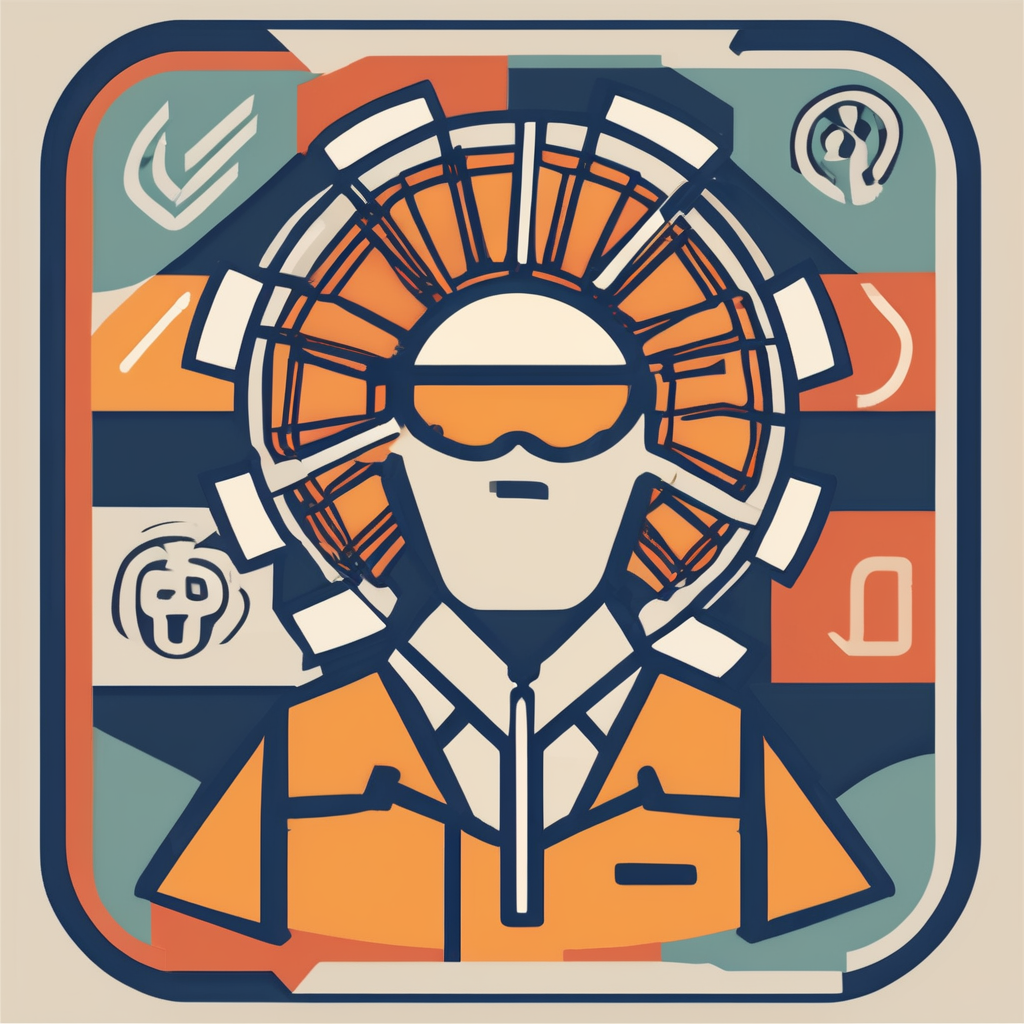Personality tests reveal more than traits they uncover how team members interact, communicate, and solve problems together. Harnessing these insights can transform hiring decisions and elevate collaboration by aligning roles with natural strengths. Understanding personality dynamics not only improves productivity but fosters a more cohesive and motivated workforce, turning diverse individuals into high-performing teams.
Impact of Personality Tests on Team Performance
Personality tests for teams serve as powerful tools in workplace psychology, offering insights that help identify the unique strengths and weaknesses of individual members. By revealing these traits, such assessments enable teams to optimize their team dynamics and tailor collaboration strategies that maximize efficiency and harmony. Understanding each member’s personality fosters empathy, reduces misunderstandings, and enhances communication key elements for successful teamwork.
This might interest you : Mastering intercompany accounting: top practical strategies
When it comes to communication and conflict resolution, personality tests equip teams with a common language to discuss differences constructively. Knowing whether a colleague leans towards introversion or extroversion, or prefers detailed planning versus spontaneous action, helps team members anticipate challenges before they arise. This foresight enables smoother negotiations and more effective problem-solving, leading to fewer disruptive conflicts.
Research and practical experience both demonstrate that teams using personality tests for teams often experience tangible improvements in productivity and morale. The collaboration benefits extend beyond individual comfort; they translate into a cohesive group that leverages complementary skills and diverse perspectives. Such synergy boosts innovation and drives better decision-making, confirming that investing in workplace psychology tools like personality tests is a strategic move for any organization aiming to elevate team performance.
Also to read : Elevate your career with tailored executive coaching services
For teams interested in exploring how personality assessments can specifically enhance their work environment, the Workplace Personality Test offers in-depth analysis and actionable insights.
Leading Personality Test Types for Teams
Understanding types of personality tests helps organizations choose tools that best fit their team dynamics. Among the most widely used frameworks are MBTI (Myers-Briggs Type Indicator), DISC, Big Five, and various strengths assessments.
MBTI categorizes individuals into 16 personality types based on preferences in how they perceive the world and make decisions. Its appeal lies in simplicity and accessibility, but critics point to concerns about reliability and overgeneralization.
DISC focuses on four behavioral traits: Dominance, Influence, Steadiness, and Conscientiousness. It excels in identifying communication styles and conflict resolution strategies, making it valuable for improving workplace interactions within teams.
The Big Five model assesses personality across five broad dimensions Openness, Conscientiousness, Extraversion, Agreeableness, and Neuroticism. It is favored in research for its empirical validity and nuanced insight into personality traits, which provides a comprehensive understanding of individual differences in teams.
Strengths assessments shift focus from personality traits to identifying individuals’ unique talents and capabilities. Harnessing these insights can lead to better role alignment and enhanced team performance.
Selecting the right personality test requires considering the organizational culture and specific team goals. For instance, teams aiming to improve communication might benefit from DISC, while those focusing on personal growth and compatibility could prefer MBTI or strengths assessments. Aligning the choice with company values ensures the tool supports positive team development.
Integrating Personality Tests in Hiring Practices
Incorporating personality tests in hiring can significantly improve recruitment strategies by ensuring a better fit between candidates and company culture. These assessments help recruiters identify traits aligned with job requirements, fostering informed employee selection and minimizing unconscious bias. Using personality tests in hiring not only streamlines the process but enhances overall workforce quality.
To implement these tools effectively, start by selecting validated assessments tailored to your industry and role. Next, integrate the tests into your interview workflows: administer the assessment early to screen candidates, then use results to guide behavioral interview questions. Consistency across candidates ensures fairness and comparability. Regularly train hiring teams on interpreting results to avoid misapplication or overreliance on test scores.
Legal and ethical considerations are critical when adopting personality tests in hiring. Ensure compliance with local employment laws by using scientifically validated assessments and maintaining transparency with candidates about test purposes. Respect candidate privacy and avoid discriminatory practices by applying tests uniformly and only for relevant job aspects.
Enhancing Team Collaboration with Personality Insights
Understanding team collaboration begins with recognizing the unique personality traits each member brings. Using a Workplace Personality Test, teams can gain valuable insights into interpersonal dynamics, which directly impact workplace relationships and how effectively team members work together.
Leveraging test results allows managers and team members to personalise communication styles and task delegation. For example, team members identified as detail-oriented may excel with tasks requiring precision, while those with strong social traits may naturally lead group discussions. Such tailored approaches reduce misunderstandings and increase productivity.
When conflicts arise, personality data offers concrete strategies to resolve them. Knowing each member’s communication preferences helps to address misunderstandings calmly and constructively. For instance, some individuals may prefer direct feedback, while others respond better to more empathetic approaches. This insight fosters mutual respect and smooth conflict resolution.
Moreover, personality insights make team collaboration more inclusive by highlighting diverse strengths and potential blind spots. Teams can celebrate different working styles, creating an environment where varied perspectives drive innovation. This approach transforms teamwork into a dynamic, trusting process, strengthening workplace relationships and boosting overall team morale. For more detailed assessments to optimize collaboration, consider exploring the Workplace Personality Test.
Best Practices and Challenges in Implementing Team Personality Tests
Implementing team personality tests requires careful attention to several implementation tips to ensure accuracy and acceptance. Transparency and consent are foundational: before administering any test, organisations should communicate clearly about its purpose, how results will be used, and confirm voluntary participation. This openness builds trust and reduces resistance, which are common obstacles during organisational change.
Test reliability is crucial. Choosing scientifically validated assessments that accurately measure personality traits can improve confidence among team members. However, even the most reliable tools can face skepticism if participants fear misuse of their data. To address ethical issues, organisations must ensure robust data security protocols and restrict access to sensitive information. Misuse of personality data for hiring or promotion decisions without proper context can erode trust and damage workplace relationships.
Managing resistance involves listening to employee concerns and demonstrating how personality tests support rather than judge them. Reinforcing confidentiality and highlighting the benefits, such as better team dynamics and tailored communication strategies, encourages acceptance. Overall, thoughtful application of implementation tips, careful management of privacy concerns, and respecting ethical boundaries help organisations successfully navigate the challenges involved in using team personality tests.
Success Stories: Teams Enhanced by Personality Testing
Personality testing has become a pivotal tool in team development, as numerous case studies demonstrate significant improvements in collaboration outcomes. Organisations leveraging these assessments report enhanced engagement, reduced turnover, and higher employee satisfaction.
One compelling case study involved a technology company that integrated a Workplace Personality Test to streamline team roles. This approach clarified individual strengths and communication styles, allowing managers to assign tasks more effectively. As a result, team collaboration improved noticeably within months, reflected in faster project completions and a more cohesive work environment.
Another success story comes from a healthcare provider using personality assessments to reduce staff turnover. By understanding personality-driven work preferences, the organisation tailored its management strategies, directly addressing employee concerns and fostering a supportive atmosphere. Employee satisfaction scores increased markedly, proving the practical impact of personality testing on retention.
Lessons learned from these cases highlight the importance of applying personality insights thoughtfully. Successful teams not only use assessment results but also engage members in discussions about their profiles. This inclusive practice encourages open communication and mutual respect, reinforcing teamwork foundations.
Overall, evidence from these success stories confirms that personality testing, when integrated into team development processes, yields measurable positive results. Companies aiming to improve collaboration outcomes and workforce stability can benefit greatly from adopting such personalized assessment tools.
Top Recommended Personality Tests for Teams
Selecting the right team assessment tools is crucial for improving collaboration and productivity. Among the top personality tests favored for workplace adoption are the Myers-Briggs Type Indicator (MBTI), the DiSC Profile, and the Big Five Personality Test. These tools stand out for their robust frameworks and relevance to diverse team dynamics.
The MBTI helps teams understand each member’s natural preferences in processing information and decision-making. Its straightforward categorization into 16 types supports better communication and conflict resolution. The DiSC Profile focuses on behavioral styles Dominance, Influence, Steadiness, and Conscientiousness enabling teams to align roles with individual strengths. The Big Five Personality Test examines five broad dimensions of personality, offering a nuanced picture that suits customization and deeper analysis.
Pricing and accessibility vary. MBTI often requires certified practitioners for administration, which can add to costs, whereas the Big Five is widely available through open platforms, making it more accessible for ongoing assessments. Support options, including guided workshops and online tools, assist teams in interpreting results and integrating insights. Customizing these tests to fit unique team structures involves selecting relevant subscales or combining reports to focus on specific workplace challenges.
Understanding these recommendations clarifies how to approach personality assessments thoughtfully. For teams ready to implement such tools, considering factors like the depth of insight needed, budget constraints, and desired customization ensures the best match and ultimately, a stronger, more cohesive team. For further tailored guidance, exploring a Workplace Personality Test can provide additional resources to enhance team dynamics and hiring decisions.










